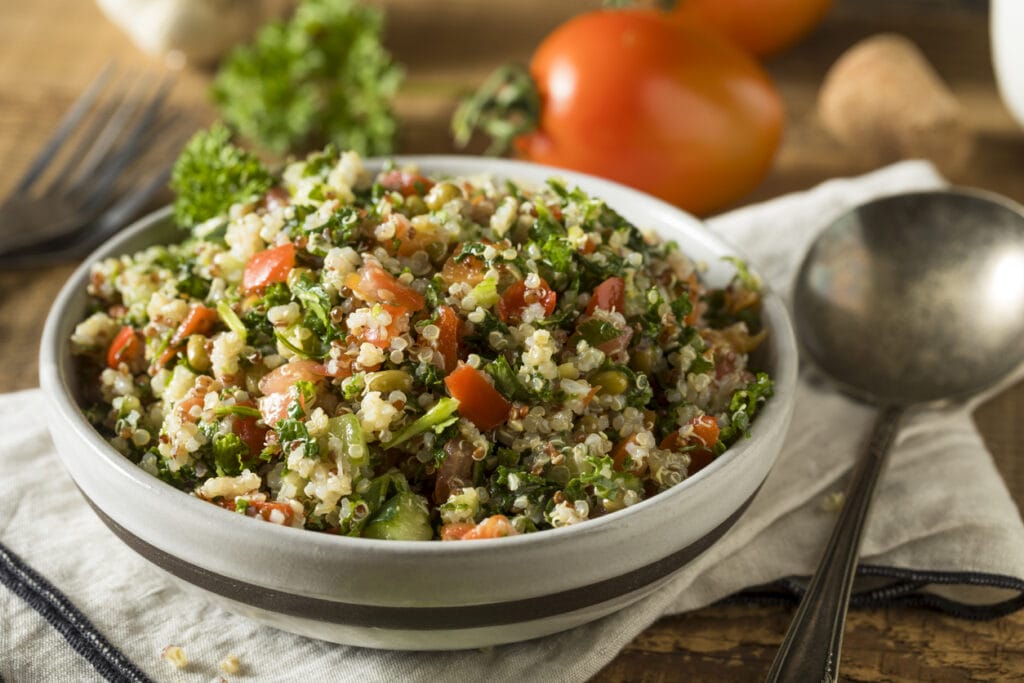As our loved ones age, their immune systems undergo subtle yet significant changes that can impact their health and well-being. Studies from the National Institutes of Health (NIH) have shown a marked decrease in the efficiency of T and B cells, which are essential for recognizing and fighting off infections.
For example, there is a notable decline in naive T cells—those responsible for identifying new threats—by approximately 50% between the ages of 20 and 70. Furthermore, antibody production, which is crucial for combating infections, also diminishes over time. Research by the National Institute on Aging (NIA) has demonstrated that older adults often have weaker antibody responses to vaccines compared to younger individuals.
These changes in the immune system can leave our elderly loved ones more susceptible to infections such as pneumonia and influenza and increase their risk of developing autoimmune diseases, where the immune system mistakenly attacks healthy tissues.
While the extent of immune decline can vary from person to person, it highlights the importance for family caregivers to implement tailored healthcare strategies aimed at strengthening immune defenses as their loved ones age. This proactive approach can play a critical role in maintaining their health, preventing illness, and enhancing their quality of life.
Challenges for the Elderly's Immune Health
Our elderly loved ones confront an array of challenges that impact their immune health:
- Chronic Medical Conditions: Conditions like diabetes, heart disease, and respiratory ailments can exacerbate immune system dysfunction, heightening susceptibility to infections.
- Medications: Some medications commonly prescribed for age-related conditions may weaken the immune system, making seniors more prone to infections.
- Reduced Mobility: Limited mobility due to age-related conditions or disabilities can hinder immune function, leading to a higher risk of infections.
- Poor Nutrition: Inadequate intake of essential nutrients weakens the immune system, making elderly individuals more vulnerable to illnesses.
- Social Isolation: Lack of social interaction and emotional support can contribute to stress and weaken the immune system, increasing susceptibility to infections.
Key Nutrients for Immune Health
Essential nutrients serve as the building blocks of a robust immune system, fortifying the body's defenses against infections and illnesses. From vitamins to minerals and proteins, each nutrient plays a unique role in maintaining optimal immune function. Understanding the importance of these nutrients equips us with valuable insights into crafting nourishing diets that promote immune resilience in our elderly loved ones.
- Vitamin C: Renowned for its immune-boosting properties, vitamin C serves as a potent antioxidant that protects against oxidative stress and strengthens immune cells. Citrus fruits, strawberries, bell peppers, and broccoli are rich sources of vitamin C, offering a delicious way to enhance immune health.
- Vitamin D: Often referred to as the "sunshine vitamin," vitamin D plays a crucial role in modulating immune responses and reducing inflammation. Sunlight exposure and dietary sources such as fatty fish, fortified dairy products, and egg yolks contribute to adequate vitamin D intake, supporting immune resilience in our elderly loved ones.
- Zinc: This trace mineral is indispensable for immune function, facilitating wound healing, and promoting the activity of immune cells. Sources of zinc include meat, shellfish, legumes, seeds, and nuts, offering versatile options to incorporate into the diets of our elderly loved ones to support their immune health.
- Protein: Vital for maintaining muscle mass and supporting immune function, protein serves as a cornerstone of elderly diets. Incorporating lean sources of protein such as poultry, fish, eggs, dairy products, legumes, and nuts ensures adequate intake to bolster immune resilience and overall well-being.

Practical Dietary Tips for Caregivers
Incorporating Immune-Boosting Foods
- Variety is Key: Introduce a diverse range of immune-boosting foods into daily meals, including fruits, vegetables, whole grains, lean proteins, and healthy fats.
- Colorful Plates: Opt for vibrant, colorful produce, as different colors signify various nutrients and antioxidants beneficial for immune health.
- Superfoods: Incorporate superfoods like berries, leafy greens, nuts, seeds, and fish rich in omega-3 fatty acids to enhance immune function.
- Herbal Support: Experiment with immune-boosting herbs and spices such as turmeric, ginger, garlic, and oregano to add flavor and health benefits to meals.

Tips for Meal Planning and Preparation
- Plan Ahead: Schedule weekly meal plans to ensure a balanced diet that includes all essential nutrients.
- Batch Cooking: Prepare larger portions of meals and freeze individual servings for convenient reheating, minimizing meal preparation time on busy days.
- Simplify Recipes: Choose simple, easy-to-prepare recipes that require minimal ingredients and cooking steps, reducing stress and time spent in the kitchen.
- Involve Loved Ones: Encourage participation from your elderly loved ones in meal planning and preparation, fostering a sense of independence and engagement.
Addressing Dietary Challenges
- Reduced Appetite: Offer smaller, more frequent meals and snacks throughout the day to stimulate appetite. Opt for nutrient-dense foods to maximize nutritional intake.
- Dietary Restrictions: Respect dietary restrictions due to medical conditions or preferences, but aim to find creative alternatives to ensure balanced nutrition.
- Texture Modifications: Adapt textures of foods to accommodate dental issues or swallowing difficulties, such as pureeing or softening foods for easier consumption.
- Hydration: Ensure adequate hydration by offering water, herbal teas, and hydrating foods like fruits and soups throughout the day.
Recipes and Meal Ideas
Nutritious Recipes
- Immune-Boosting Smoothie:
- Ingredients: Spinach, kale, banana, berries, yogurt, almond milk, chia seeds.
- Instructions: Blend all ingredients until smooth and creamy. Serve chilled for a refreshing boost of vitamins and antioxidants.
- Quinoa Salad with Roasted Vegetables:
- Ingredients: Quinoa, mixed vegetables (bell peppers, zucchini, cherry tomatoes), olive oil, lemon juice, feta cheese, fresh herbs (parsley, basil).
- Instructions: Cook quinoa according to package instructions. Roast vegetables tossed in olive oil until tender. Combine quinoa, roasted vegetables, feta cheese, and herbs. Drizzle with lemon juice and olive oil. Serve warm or chilled.
- Baked Salmon with Garlic and Herbs:
- Ingredients: Salmon fillets, garlic cloves, lemon zest, fresh herbs (dill, parsley), olive oil, salt, pepper.
- Instructions: Preheat oven to 375°F. Place salmon fillets on a baking sheet. Rub with minced garlic, lemon zest, chopped herbs, olive oil, salt, and pepper. Bake for 15-20 minutes until salmon is cooked through and flakes easily with a fork. Serve with steamed vegetables or a side salad.
Meal Suggestions
- Breakfast:
- Oatmeal with sliced bananas, nuts, and a drizzle of honey.
- Greek yogurt parfait with granola, mixed berries, and a sprinkle of cinnamon.
- Whole grain toast with avocado mash and poached eggs.
- Lunch:
- Chicken and vegetable stir-fry served over brown rice.
- Spinach and strawberry salad with grilled chicken, feta cheese, and balsamic vinaigrette.
- Lentil soup with whole grain bread and a side of steamed broccoli.
- Dinner:
- Turkey meatballs with marinara sauce served over whole wheat pasta.
- Grilled vegetable and tofu skewers with quinoa pilaf.
- Baked sweet potato topped with black beans, salsa, avocado, and Greek yogurt.

Monitoring and Adjusting the Diet
Tips for Effective Monitoring
- Keep a Food Journal: Encourage your loved one to keep a food diary to track their daily intake of food and fluids. This can help identify patterns, preferences, and any potential deficiencies in their diet.
- Observe Changes in Health: Pay close attention to any changes in your loved one's health, such as weight loss, fatigue, or changes in appetite. These may indicate underlying nutritional issues that need to be addressed.
- Monitor Hydration: Ensure your loved one stays hydrated by monitoring their fluid intake and observing signs of dehydration, such as dry mouth, dark urine, or dizziness.
- Regular Check-Ins: Have regular conversations with your loved one about their dietary habits, preferences, and any challenges they may be facing. This can help identify areas for improvement and make necessary adjustments to their diet.
Consulting Professionals
When it comes to your loved one's dietary needs, being attentive to signs like significant health changes, unexplained weight loss, difficulty swallowing, or chronic conditions is crucial for considering professional help. Consulting with healthcare professionals or registered dietitians offers personalized recommendations tailored to their specific needs and medical history, addressing nutritional deficiencies and suggesting appropriate dietary modifications or supplements.
Collaborating with these experts enables the development of a comprehensive care plan that prioritizes your loved one's nutritional well-being, with regular follow-up appointments facilitating monitoring and adjustments as needed for optimal care.





